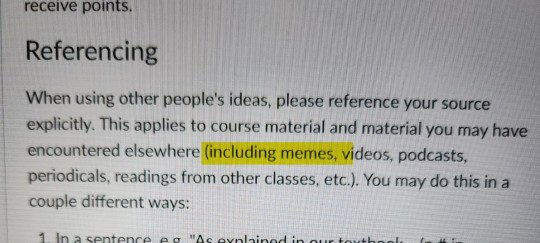#social science
Text
#hairstyles#nct x reader#tattoo#nintendo switch#dreads#sugarbaby#aaron johnson#ewan mcgregor#beautiful women#big tiddy baby#maid#social science#hotwives#banking
128 notes
·
View notes
Photo

Who else agrees?
#biology#chemistry#physics#computing#social science#sciences#studying#memes#meme#student memes#funny#comedy#science#insidesjoke#most popular#coding
2K notes
·
View notes
Text
For nearly two decades, the negotiation skills of working women have frequently been blamed for the gender pay gap. New research by Vanderbilt Professor Jessica A. Kennedy finds the gender difference in tendency to negotiate has now reversed, and the widespread narrative that women don't ask is outdated. While other measures are necessary to completely close the gender pay gap, the study also discusses how people who believe and adhere to the notion that "women don't ask" hinder progress.
"Our research shows that women are willing to do their part to close the gender pay gap. Unfortunately, negotiating well isn't enough to close the gender pay gap. It's not the source of the problem," says Kennedy.
Continue Reading
1K notes
·
View notes
Text
I started wondering how the Greeks and Romans developed monogamy norms, in contrast to the harem systems you see in e.g. classical China. And I did some random googling and I have not learned anything I consider super reasonable but I did discover this marvelous abstract by Mara Squicciarini and Jo Swinnen:
Intriguingly, across the world the main social groups which practice polygyny do not consume alcohol. We investigate whether there is a correlation between alcohol consumption and polygynous/monogamous arrangements, both over time and across cultures. Historically, we find a correlation between the shift from polygyny to monogamy and the growth of alcohol consumption. Cross-culturally we also find that monogamous societies consume more alcohol than polygynous societies in the preindustrial world. We provide a series of possible explanations to explain the positive correlation between monogamy and alcohol consumption over time and across societies.
A working paper circulated to the American Association of Wine Economists, so you know it's legit.
269 notes
·
View notes
Text
#dark academia#academic aesthetic#academia#science#biology#chemistry#physics#history#maths#political science#poliscience#social science#archaeology#poll
340 notes
·
View notes
Text

Lustige Blätter (illustration), 1901.
by Artus Scheiner.
#bookish#book review#reading#books#poetry#authors#book blog#booklr#writing#social science#studyblr#book worm#books & libraries#history#art history#art#art blog#art gallery#art aesthetic#english literature#vintage#dark academia#academia#light academia#cottagecore#aesthetic#education#punk academia#artists on tumblr#illustration
5K notes
·
View notes
Text

I can cite memes in my cultural anthropology class
176 notes
·
View notes
Text

"Loyalty is often touted as a moral principle, or virtue, worth exemplifying in social and business relations. But is it always beneficial to be loyal? We investigate possible negative consequences of being a loyal employee in the workplace. Instead of protecting or rewarding them, loyal employees are selectively and ironically targeted by managers for exploitative practices (Studies 1–2). The targeting of these loyal workers is mediated by the assumption that loyal individuals are readily willing to make personal sacrifices for the objects of their loyalty (Study 1). We then find evidence for the reverse causal pathway: workers who agree (versus refuse) to be exploited in the workplace acquire stronger reputations for loyalty (Studies 3 and 4). These bidirectional causal links between loyalty and exploitation have the potential to create a vicious circle of suffering. We discuss the implications of these results for obtaining a reputation for loyalty."
949 notes
·
View notes
Text

#light academia#quotes#classic academia#women in stem#literature#history#soft academia#dark academia#chaotic academia#light academism#humanities#english#english major#social science#music#women in music#women in history#Women in phlegm#scholarship#scholarly academia#phd scholar#dark academism#light acamedia#dark acamedia#english lit student#academia aesthetic#literary quotes#classic literature#reading
800 notes
·
View notes
Text
A study from The University of Texas at El Paso reveals a gender disparity in prison infractions that disproportionately affects women.
The study, led by Melinda Tasca, Ph.D., an associate professor in the Department of Criminal Justice and Security Studies at UTEP, and published in Justice Quarterly, analyzed the disciplinary infraction records of more than 20,000 males and females in a large western state prison, who were released between 2010 and 2013.
The researchers set out to answer three questions: 1) whether women were more likely than men to receive defiance infractions; 2) whether women received a greater number of defiance infractions than men; and 3) whether the gender differences observed for defiance were unique from other types of infractions (e.g., nonviolent and violent).
Defiance acts are the most minor of rule violations and are often verbal in nature, including disrespect, being disruptive or disobeying an order. Defiance infractions can also come as the result of committing unallowed consensual contact, unauthorized altering of one's appearance, or failing to adhere to hygiene requirements.
"Despite being minor violations, defiance infractions can have profound consequences," Tasca said. Individuals found guilty of defiance infractions may be subject to solitary confinement, be denied phone calls and visits with loved ones, and be negatively impacted when it comes to parole board decisions.
Continue Reading.
261 notes
·
View notes